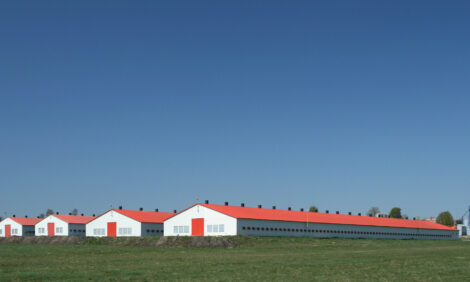



Govt Support Would Help Poultry Sector
BANGLADESH - More government support would help the poultry industry to boost the protein supply to the population as well as provide employment opportunities.The poultry industry has multi-faceted prospects, reports Financial Express of Bangladesh. First of all, it showed the way to meeting the protein need of the already vast population of the country. The traditional poultry birds – reared naturally and not through any planned manner – had been the mainstay for ages. But the need of the growing population dictated concerted and coordinated moves for breeding of poultry birds to cope with the higher demand. Such moves began in the eighties and constitute now a well-established field of activities in the country.
According to statistics available from operators in the sector, there are now about five Grand Parent Stock farms, 40 to 50 Parent Stock Farms and hatcheries, between 70,000 and 80,000 poultry farms and 15 to 20 poultry feed mills in the private sector.
The sector is also poised to grow rapidly. It has already posted an annual growth of some 20 per cent during last one and a half decades. Owners and operators in the industry are confident that it could grow rapidly in the coming years and create employment opportunities for another 10 million people. The employment opportunities would be created for the current jobless people at the grassroots levels. This is certainly a piece of heartening news for an economy that suffers from a heavy burden of unemployment. The poultry industry is not only meeting local needs very substantially, it has also found newer opportunities from value addition. Food industries have grown up based on chicken that produce soups, nuggets, sausages and other products in accordance with the changing preferences of the customers. Some of such local poultry-based and value-added products are also being exported. The export trend looks encouraging.
But the faster and fuller realisation of the potentials of this sector also requires government's supportive measures, according to Financial Express. The association of owners in this industry drew attention to the needs of such supports in a recently held conference. Maize, the basic ingredient for making chicken feed, needs to be imported. The industry importers have requested for withdrawal of advance income tax (AIT) on import of maize and also of tax from pelleted feeds. There are other raw materials and medicines which need importing for the poultry industry and its operators have been expecting that the government would declare duty concessions on the import of these. The proposals of the owners of the poultry farm merit consideration and should be met to a reasonable extent. Extending of such incentives by the government will help healthy growth of this sector.
Financial Express reports that there is another vital area where the government can contribute the most. This is in the area of monitoring and regulation. Recently, media reports alleged that certain local feed-making enterprises made poultry feed from hazardous substances from tanneries. Clearly, there are dangers to local consumers of poultries as well as a threat to the reputation of the emerging export-oriented and value-adding enterprises in this sector, if such dangerous activities and instincts are not nipped in the bud. For this purpose, the relevant agencies of the government will have to improve and extend their monitoring and regulatory functions. In this context, governmental supervision to create conditions for healthful breeding of the birds in the farms, would be considered critically important. The poultry sector earlier suffered serious reverses several times in recent years from bird flu. The government has to conduct extensive countrywide monitoring and preventive activities to detect cases of bird flu and prevent its break-out in an epidemic form anywhere within the country.








